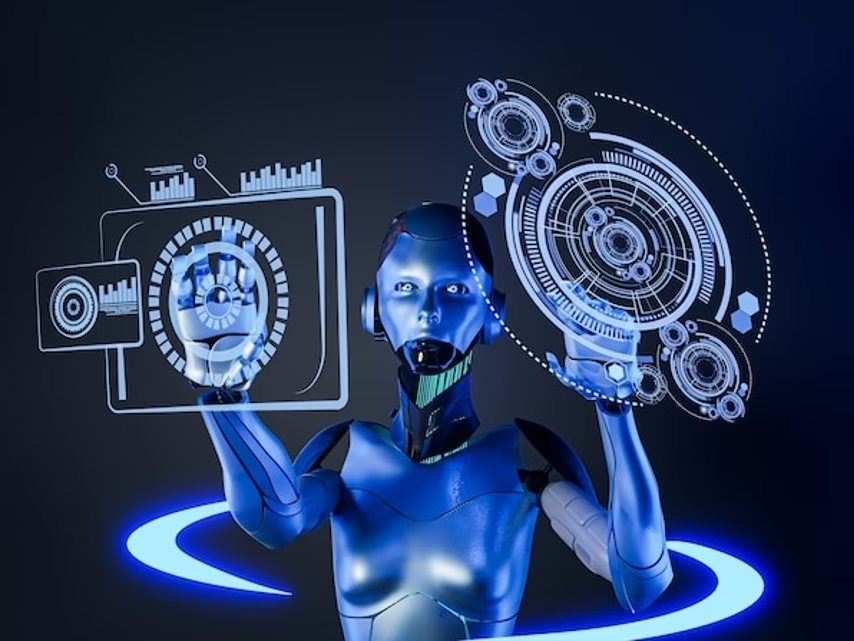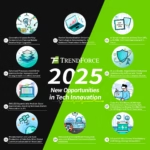“`html
The Unfolding Era of AI: What to Expect in 2025
Estimated reading time: 15 minutes
Key Takeaways
- The pace of artificial intelligence development is accelerating rapidly, making 2025 a pivotal year.
- We can expect a surge of revolutionary AI trends 2025 that will reshape industries.
- Numerous top AI advancements 2025 are poised for significant impact and adoption.
- Understanding the essential AI technology outlook 2025 is crucial for navigating this evolving landscape.
- AI is moving from experimentation to widespread adoption, becoming a fundamental part of daily life and global industries.
Table of contents
- The Unfolding Era of AI: What to Expect in 2025
- Key Takeaways
- The Accelerating Trajectory of AI in 2025
- Decoding the Revolutionary AI Trends of 2025
- Groundbreaking AI Breakthroughs on the Horizon for 2025
- Top AI Advancements Poised for Impact in 2025
- An Essential AI Technology Outlook for 2025 and Beyond
- The AI Transformation: Preparing for 2025 and the Future
- Frequently Asked Questions
The world stands on the precipice of a new era, one defined by the relentless and accelerating advancement of artificial intelligence. As we look towards 2025, the signals are clear: AI is not just a buzzword; it’s a driving force of innovation and transformation across every facet of our lives. Understanding the leading artificial intelligence trends 2025 is no longer optional – it’s essential for navigating the future. This year promises to unveil truly revolutionary AI trends 2025 and showcase the most impactful top AI advancements 2025, all contributing to a vital essential AI technology outlook 2025.
The Accelerating Trajectory of AI in 2025
The trajectory of AI development in 2025 is marked by an unprecedented acceleration. What was once confined to research labs and specialized applications is rapidly permeating everyday life and becoming indispensable to global industries. This isn’t just about incremental improvements; 2025 is shaping up to be a pivotal year where AI transitions decisively from an experimental curiosity to a widely adopted, transformative technology.
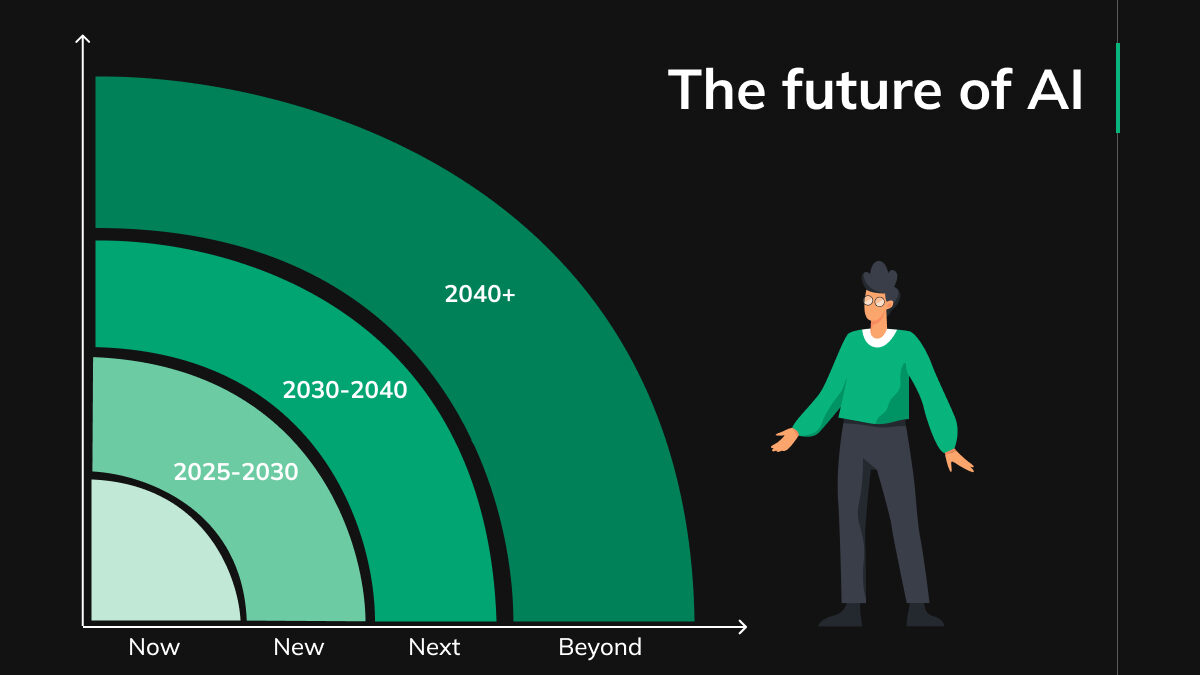
Research consistently highlights this shift. AI is rapidly moving from a niche technology to a fundamental part of daily life and global industries.
This signifies a profound change in how we interact with technology and how businesses operate. Furthermore, 2025 is a pivotal year where AI transitions from experimentation to widespread adoption, driving transformation across all sectors. The impact will be felt across finance, healthcare, transportation, and beyond.
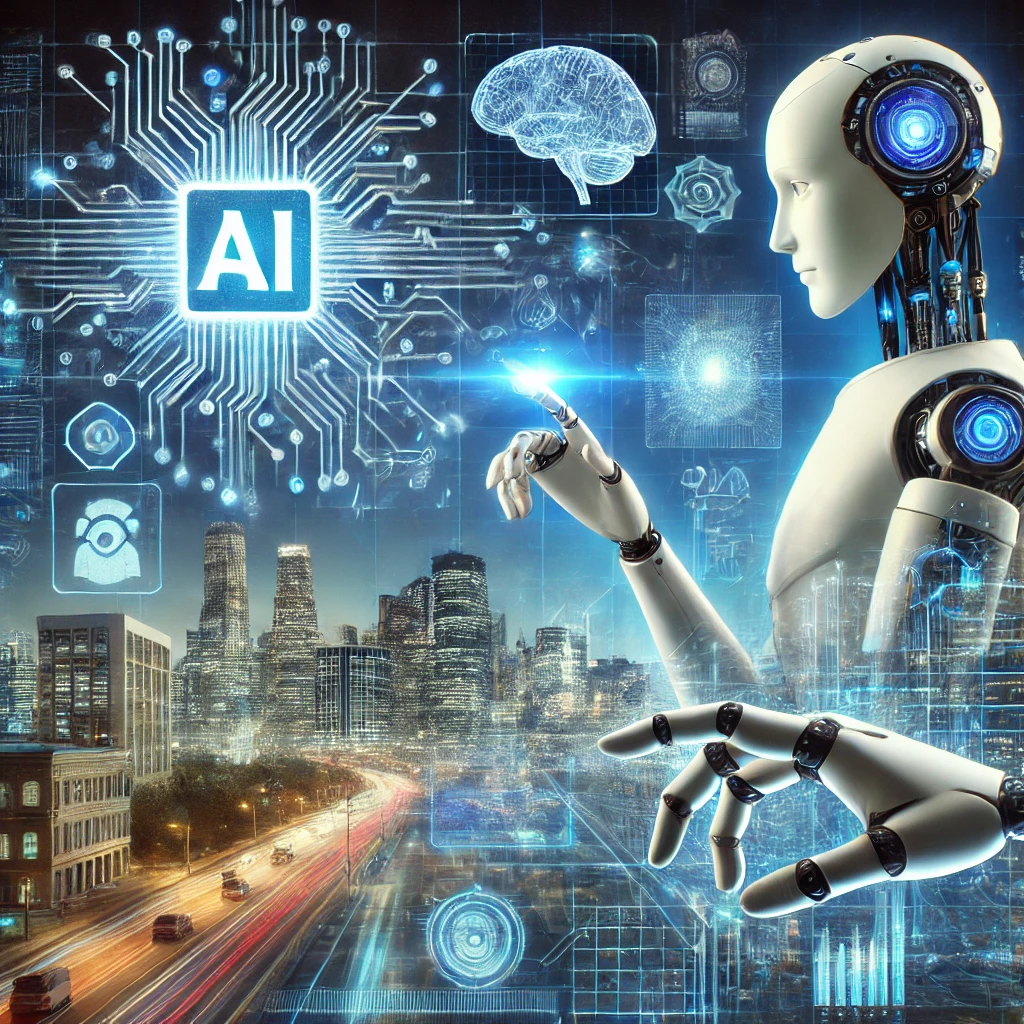
Underpinning this widespread adoption is the continuous evolution of AI models themselves. AI models are becoming faster, more efficient, and increasingly specialized, enabling complex reasoning and industry-specific problem-solving. This specialization allows AI to tackle nuanced challenges that were previously beyond its capabilities.
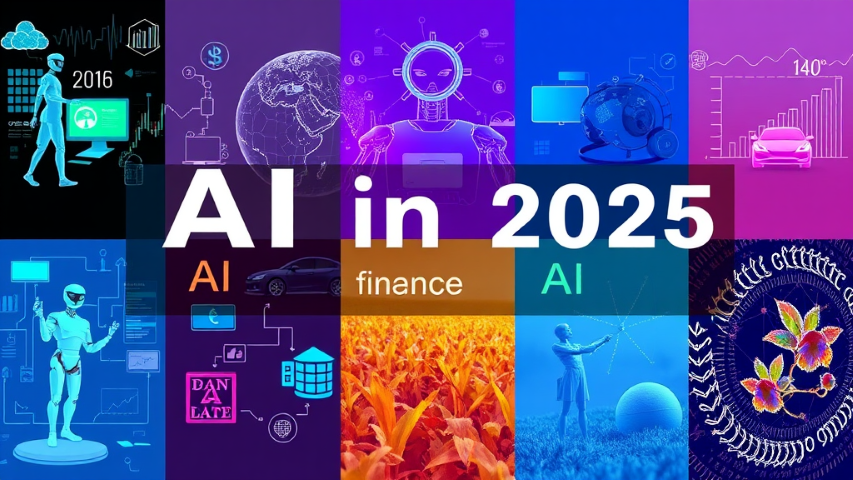
The integration of AI into existing workflows is also accelerating at a remarkable pace. A significant jump in generative AI usage among business leaders, from 55% to 75% in just one year, indicates a clear shift from mere curiosity to genuine reliance. This surge in adoption underscores the tangible benefits businesses are realizing.

Ultimately, organizations are increasingly harnessing AI not just for efficiency, but to address complex global challenges, boost productivity, and create entirely new avenues of value. The widespread adoption and sophisticated application of AI in 2025 will redefine what’s possible.
Decoding the Revolutionary AI Trends of 2025
As we delve deeper into the upcoming year, several revolutionary AI trends 2025 are set to redefine the technological landscape. These trends are not merely speculative; they represent concrete advancements with the potential to reshape industries and human interaction with technology.
Trend 1: Generative AI’s Continued Evolution
Generative AI models are poised for a significant leap forward. Expect them to produce content that is not only more sophisticated and personalized but also capable of executing complex, multi-step workflows with remarkable autonomy. Frontier models will increasingly handle intricate tasks like advanced coding and sophisticated content creation, while the use of synthetic data will become crucial for improving the performance of smaller, more specialized models.
This evolution means generative AI will move beyond simple text and image generation to become a powerful partner in complex creative and technical processes.
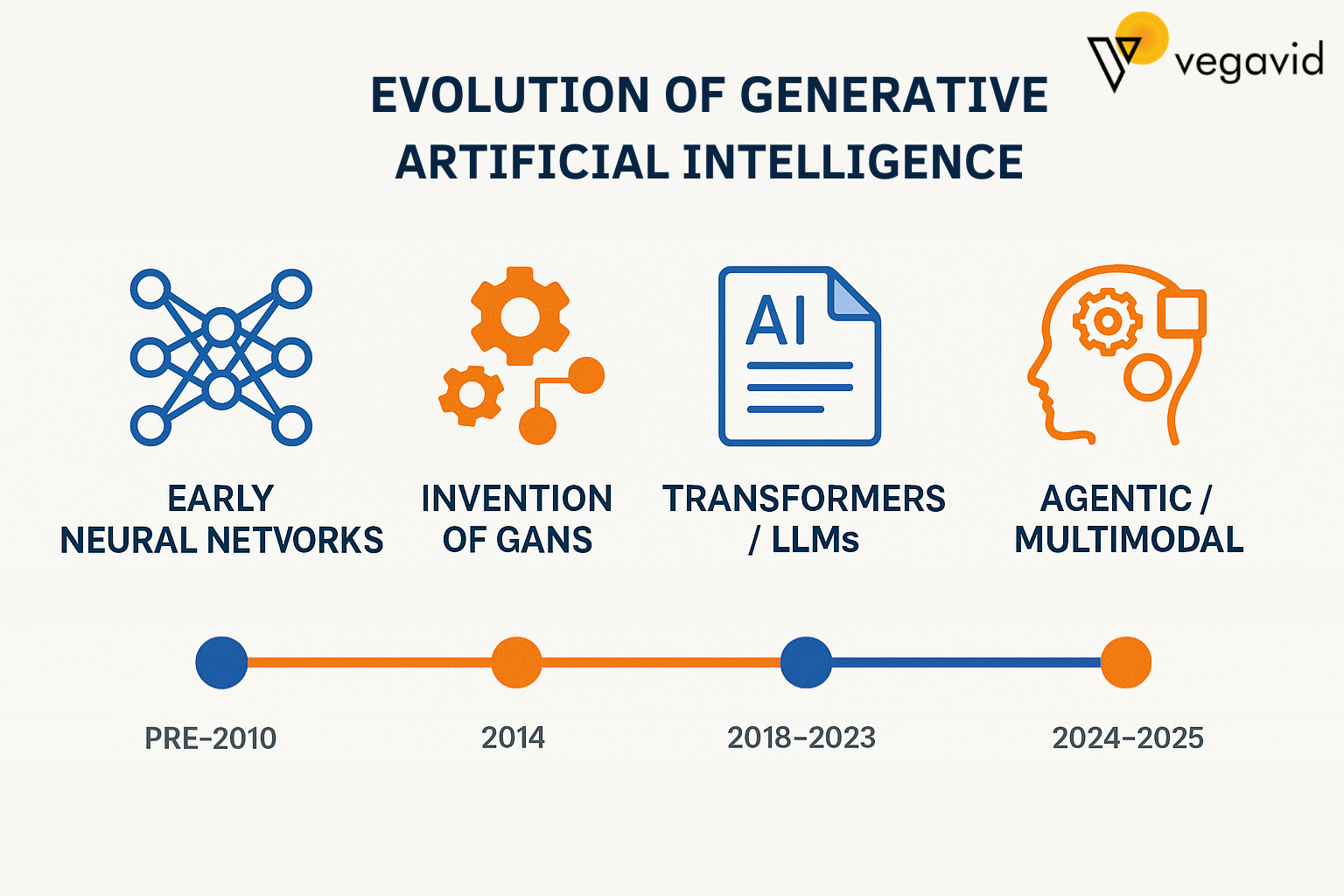
Trend 2: AI’s Pervasive Integration into Edge Computing
The processing of AI at the edge – directly where data is generated – will become increasingly prevalent. This paradigm shift promises faster, real-time decision-making, reducing latency and significantly enhancing data privacy as sensitive information doesn’t need to be transmitted to central servers. This is critical for applications requiring immediate responses, such as autonomous systems and industrial IoT.

Trend 3: The Rise of Explainable AI (XAI) and Enhanced Trustworthiness
As AI systems become more powerful and integrated into critical decision-making processes, the demand for transparency, interpretability, and ethical deployment will surge. The focus on developing safe, secure, and understandable AI systems will be paramount to building user and societal trust. Trustworthiness is a critical theme as AI becomes more widespread, with a focus on developing safe and secure AI systems.
Explainable AI (XAI) will be key to demystifying AI’s decision-making processes.
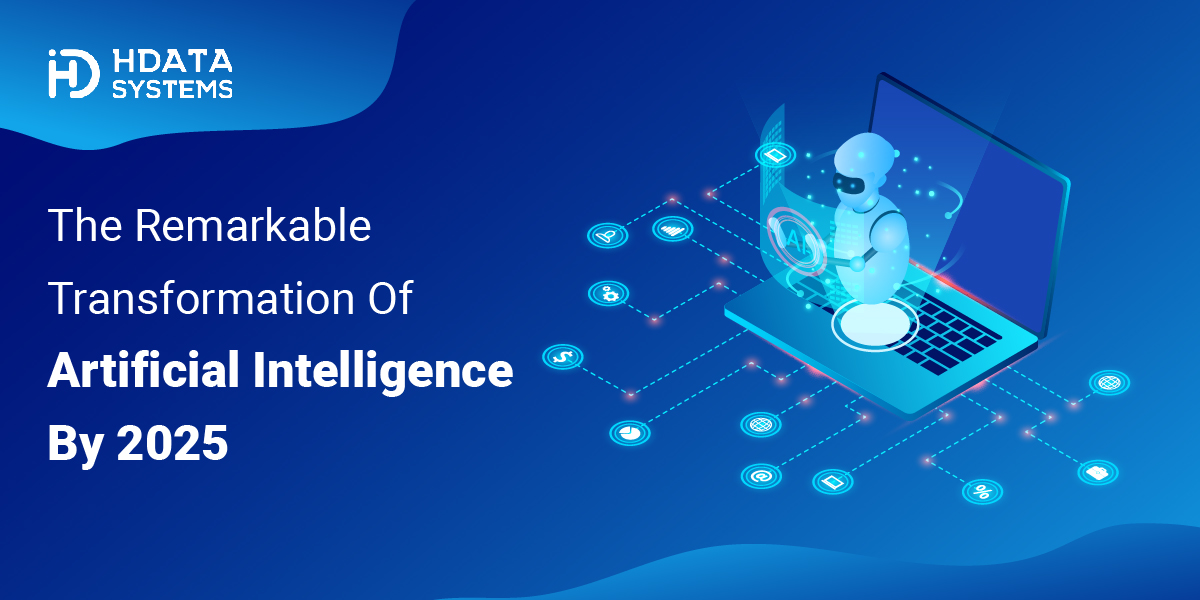
Trend 4: Hyper-Personalization Driven by AI
AI’s capacity for deep personalization will reach new heights. By precisely recalling past interactions and accurately predicting individual user needs, AI will enable highly tailored experiences across various platforms and services. AI’s near-infinite memory allows bots to retain user interaction history, enabling profound personalization.
This means everything from product recommendations to customer service interactions will feel uniquely crafted for each individual.
Trend 5: Expanding AI-Powered Automation
AI automation will extend far beyond routine tasks, encompassing more complex problem-solving capabilities across a multitude of industries. AI is increasingly optimizing IT networks, adapting to security threats, and managing customer service at scale.
This expansion will lead to significant efficiency gains and allow human workers to focus on higher-level strategic thinking and problem-solving.
Groundbreaking AI Breakthroughs on the Horizon for 2025
Beyond the broad trends, 2025 is set to witness significant, groundbreaking AI breakthroughs that push the boundaries of what’s currently considered possible. These advancements promise to unlock new scientific discoveries, enhance computational power, and refine our understanding of complex systems.
Breakthrough 1: AI Breakthroughs in Quantum Computing
The synergy between artificial intelligence and quantum computing, while a longer-term vision, will see significant research advancements in 2025. Exploration into how quantum algorithms can tackle previously intractable problems in areas such as optimization, complex simulations, and cryptography will intensify. This burgeoning field holds the promise of solving problems that are currently beyond the reach of even the most powerful classical computers.
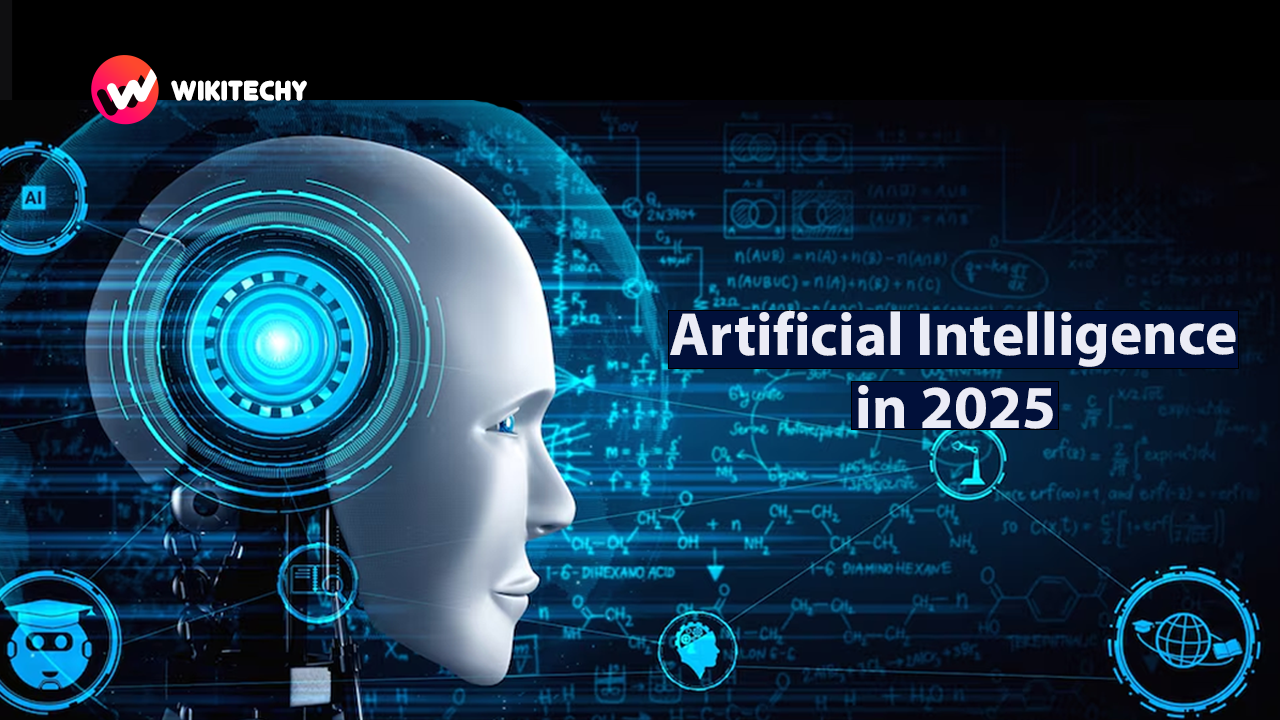
Keyword Placement: AI breakthroughs in quantum computing.
Breakthrough 2: Advancements in Natural Language Processing (NLP)
NLP models are set to achieve unprecedented levels of nuanced language understanding and generation. This will be largely driven by the development and implementation of massive context windows, stretching into hundreds of thousands or even millions of tokens. Such large context windows enable richer, longer conversations and deeper analytical capabilities, making AI a more intuitive and effective communicator and analyst.
Incorporating research finding: Large context windows enable richer, longer conversations and deeper analysis.
This advancement is crucial for applications requiring detailed comprehension and sophisticated dialogue.
Breakthrough 3: Sophistication in Computer Vision
The ability of AI to analyze images and videos will reach new levels of sophistication in 2025. This will power more advanced applications in critical sectors like healthcare, manufacturing, and security. In healthcare, AI systems are already reaching or surpassing human performance in specific diagnostic tasks, promising earlier and more accurate detection of diseases. This enhanced visual analysis will unlock new possibilities in automation and monitoring.

Incorporating research finding: AI systems are achieving near-human or superior performance in specific diagnostic tasks.
This leap in computer vision is set to revolutionize how we perceive and interact with visual data.
Breakthrough 4: AI Accelerating Scientific Discovery
AI’s role in accelerating scientific discovery will become increasingly pronounced. AI-driven simulations, particularly in complex fields like protein dynamics, are poised to drive significant breakthroughs in drug discovery, materials science, and climate research. These powerful new tools will provide scientists with the means to address some of the most critical global challenges facing humanity, offering faster pathways to solutions.

Incorporating research finding: AI-driven simulations are accelerating breakthroughs in drug discovery, materials science, and climate research.
The application of AI in scientific research is opening up unprecedented avenues for innovation and problem-solving.
Top AI Advancements Poised for Impact in 2025
Beyond the theoretical breakthroughs, 2025 will see tangible top AI advancements 2025 moving from development into widespread application. These advancements are set to deliver significant real-world impact across various critical sectors, demonstrating the practical value and transformative power of AI.
Healthcare: AI’s role in healthcare will continue to expand significantly. Its capabilities in diagnostics are already outperforming physicians in some clinical reasoning studies, and its ability to accelerate drug discovery through advanced simulations is revolutionizing pharmaceutical research. AI can outperform physicians in clinical reasoning in some studies and aids in diagnostics.
AI accelerates drug discovery through advanced simulations.
These advancements promise more accurate diagnoses, faster treatment development, and improved patient outcomes.

Finance: The financial sector will leverage AI for enhanced fraud detection, automating compliance processes, and developing more sophisticated, personalized investment strategies. AI’s analytical power is becoming indispensable for identifying complex patterns indicative of fraud and for ensuring regulatory adherence in an intricate financial world.
Transportation: While fully autonomous vehicles may still be some way off for widespread consumer adoption, 2025 will see continued, albeit limited, deployments of autonomous vehicle technology. Pilots of robotaxis in select cities will offer glimpses into the future of urban mobility. Limited deployments of autonomous vehicles and robotaxi pilots are occurring in select cities.
These trials provide invaluable data and pave the way for broader integration.

Customer Service: AI-powered bots are set to transform customer experiences by resolving increasingly complex issues, leveraging detailed user histories to provide contextually aware support, and offering round-the-clock multilingual assistance. Bots can resolve complex issues, remember user histories, and offer 24/7 multilingual support.
AI is transforming customer service with personalized and accessible platforms.
This enhanced capability means customers will receive faster, more effective, and highly personalized support.
Public Sector: Governments worldwide are increasingly utilizing AI to streamline public services, process claims with greater efficiency, detect fraud more effectively, and improve citizen engagement through personalized digital platforms. Governments are using AI to streamline services, process claims, detect fraud, and improve citizen engagement.
This integration promises more responsive and efficient governance.
An Essential AI Technology Outlook for 2025 and Beyond
Looking ahead, the essential AI technology outlook 2025 reveals a robust ecosystem and critical considerations that will shape the future of AI. The infrastructure supporting AI is becoming increasingly powerful and accessible, while ethical considerations and persistent challenges are coming to the forefront.

The underlying infrastructure is key to AI’s advancement. This includes powerful cloud platforms that provide scalable computing resources, specialized hardware like GPUs and TPUs designed for AI computations, and increasingly capable, scalable edge devices that enable distributed intelligence.
This robust technological foundation is critical for the continued development and deployment of sophisticated AI systems.
However, alongside technological progress, ethical considerations are becoming non-negotiable. Bias mitigation in AI algorithms, stringent data privacy measures, and a deep understanding of the societal impact of AI automation are central to responsible AI adoption. Ethical considerations like bias mitigation, data privacy, and the societal impact of automation are central to responsible AI adoption.
Addressing these ethical dimensions is crucial for building public trust and ensuring AI benefits all of society.

Persistent challenges, such as talent shortages in AI engineering and ethics, also demand attention. There is a growing need for comprehensive education and upskilling initiatives to equip the workforce with the skills necessary to develop, manage, and work alongside AI technologies.
Bridging this talent gap is vital for sustained innovation.
Economically, AI is poised to act as a powerful catalyst for productivity and innovation. Yet, concerns about job displacement and the widening digital divide remain. Managing these economic implications proactively will be crucial for ensuring equitable distribution of AI’s benefits.
The economic implications of AI are profound, offering both opportunities for growth and challenges related to workforce adaptation.
The AI Transformation: Preparing for 2025 and the Future
As we consolidate our understanding of the evolving AI landscape, it’s clear that 2025 will be a landmark year. The most significant revolutionary AI trends 2025, including the maturation of hyper-personalized AI agents, the growing importance of explainable and trustworthy AI, and the continued evolution of generative AI, are set to redefine our technological interactions. Generative AI’s maturation, hyper-personalization, and trustworthy systems are key trends for 2025.
These trends indicate a move towards more intuitive, reliable, and personalized AI applications.

The impact of AI breakthroughs in quantum computing, alongside advancements in NLP and computer vision, and AI’s accelerating role in scientific research, cannot be overstated. While the full synergy of quantum and AI is a longer-term prospect, 2025 will lay critical groundwork. Breakthroughs in NLP, computer vision, and scientific research are delivering tangible benefits, with quantum-AI synergy on the horizon.
These breakthroughs are expanding the horizons of scientific inquiry and computational power.
Staying informed about the latest artificial intelligence trends 2025 is crucial for businesses seeking to innovate, policymakers aiming to regulate effectively, and individuals preparing for a future increasingly shaped by AI.
Continuous learning and adaptation are key in this rapidly evolving field.

The transformative power of AI is undeniable and its influence will only continue to grow. As we navigate this exciting and complex future, there is a collective responsibility to guide AI’s development ethically, ensuring its advancements serve the broadest benefit of humanity. The journey of AI is one of continuous evolution, and 2025 marks another significant chapter in its unfolding story.
The responsible development and deployment of AI will define its ultimate impact on our world.
Frequently Asked Questions
What are the most significant AI trends to watch in 2025?
The most significant trends include the continued evolution of generative AI, the pervasive integration of AI into edge computing, the rise of explainable AI (XAI) for enhanced trustworthiness, hyper-personalization driven by AI, and the expansion of AI-powered automation into more complex tasks.
How is AI impacting scientific discovery in 2025?
AI is accelerating scientific discovery through advanced simulations in fields like drug discovery, materials science, and climate research. These AI-driven tools enable scientists to tackle complex problems and find solutions more rapidly.
Will AI lead to widespread job displacement in 2025?
While AI automation will change the nature of work and may lead to displacement in certain roles, it is also expected to create new jobs and boost productivity. The economic implications are complex, and proactive strategies for upskilling and workforce adaptation are crucial.
What is the role of ethical considerations in AI development for 2025?
Ethical considerations such as bias mitigation, data privacy, and understanding the societal impact of AI automation are central to responsible AI adoption in 2025. Building trustworthy AI systems is a top priority.
How will AI advance in healthcare by 2025?
In healthcare, AI will see advancements in diagnostics, with systems potentially outperforming human physicians in certain tasks, and significant acceleration of drug discovery through advanced simulations, leading to faster development of new treatments.
What is the significance of AI in edge computing in 2025?
AI processing at the edge in 2025 will enable faster, real-time decision-making directly at the data source, reducing latency and improving data privacy. This is vital for applications requiring immediate responsiveness and enhanced security.
How is AI improving customer service in 2025?
AI-powered bots will handle more complex customer issues, leverage user history for personalized support, and provide 24/7 multilingual assistance, transforming customer experiences with greater efficiency and personalization.
What are the key challenges in AI technology outlook for 2025?
Key challenges include talent shortages in AI engineering and ethics, the need for robust ethical frameworks, managing the societal and economic impacts of automation, and ensuring equitable access to AI technologies.
What is the future outlook for AI in the public sector in 2025?
Governments will increasingly use AI to streamline services, improve claim processing, enhance fraud detection, and foster better citizen engagement through personalized digital platforms, leading to more efficient and responsive public administration.
How will NLP capabilities evolve in 2025?
NLP models in 2025 will feature significantly larger context windows, enabling them to understand and generate language with greater nuance, leading to richer, longer conversations and more in-depth analytical capabilities.
“`


